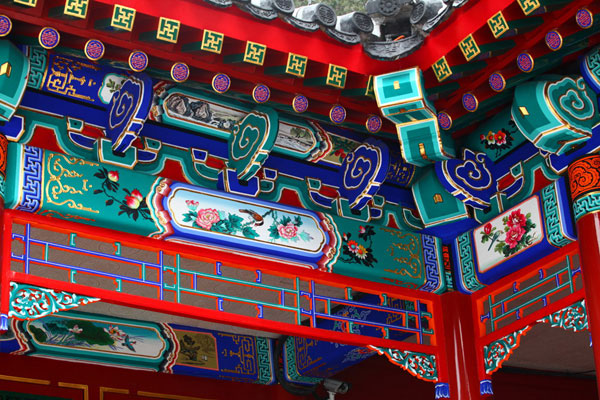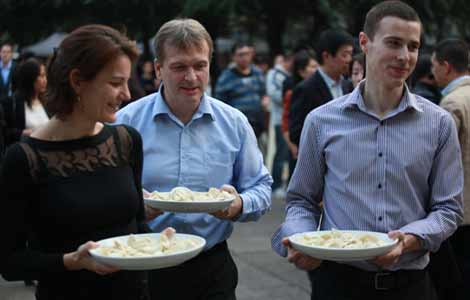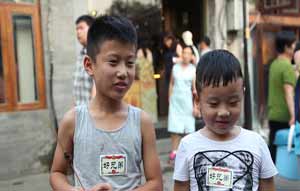Imperial delight
Updated: 2013-05-22 02:39
By Zhang Zixuan (China Daily)
|
||||||||
 |
|
The buildings' eaves are decorated with delicate paintings. Provided by the Summer Palace to China Daily |
It is also one of the four major grand theaters of the Qing Court along with Tongle Garden Theater in the Yuanmingyuan Imperial Garden, Qingyin Pavilion in the Summer Mountain Resort at Chengde, Hebei province, and Studio of Unimpeded Sound (Chang Yin Ge) in the Forbidden City.
The three-story theater stage can accommodate more than 100 actors performing simultaneously. It was designed with skylights, pits and pulleys, which can be used for air-and-ground myth plays. There is also a well at the bottom, where water can be drawn onto the stage when needed.
According to the Qing Court's documentation, Cixi watched operas more than 260 times in the garden. Peking Opera masters, such as Tan Xinpei (1847-1917) and Yang Xiaolou (1878-1938) used to perform for her.
The empress dowager used to sit in the Yile Hall, which was opposite the theater stage.
The surrounding porches on both sides were the seats for the ministers. At that time, the "puppet" Emperor Guangxu controlled by the "Dragon Lady" was only allowed to sit in the porch.
In 1953, these porches were modified into exhibiting spaces. They are now reopened and reinstated together with the grand theater.
There will be several performances shown on the theater stage every day, including Peking Opera and court dances, says Qin Lei, director of the cultural heritage department and assistant to director of the Summer Palace.
He says the Summer Palace is also working with the Beijing Peking Opera Institute to create a chronicle play.
"The play will rerun the moments of how Empress Dowager Cixi promoted the development of Peking Opera," Qin says.

 Victoria Beckham S/S 2014 presented during NYFW
Victoria Beckham S/S 2014 presented during NYFW
 'Despicable' minions upset Depp's 'Lone Ranger' at box office
'Despicable' minions upset Depp's 'Lone Ranger' at box office
 'Taken 2' grabs movie box office crown
'Taken 2' grabs movie box office crown
 Rihanna's 'Diamonds' tops UK pop chart
Rihanna's 'Diamonds' tops UK pop chart
 Fans get look at vintage Rolling Stones
Fans get look at vintage Rolling Stones
 Celebrities attend Power of Women event
Celebrities attend Power of Women event
 Ang Lee breaks 'every rule' to make unlikely new Life of Pi film
Ang Lee breaks 'every rule' to make unlikely new Life of Pi film
 Rihanna almost thrown out of nightclub
Rihanna almost thrown out of nightclub
Most Viewed
Editor's Picks

|

|

|

|

|

|
Today's Top News
Going green can make good money sense
Senate leader 'confident' fiscal crisis can be averted
China's Sept CPI rose 3.1%
No new findings over Arafat's death: official
Detained US citizen dies in Egypt
Investment week kicks off in Dallas
Chinese firm joins UK airport enterprise
Trending news across China
US Weekly

|

|







